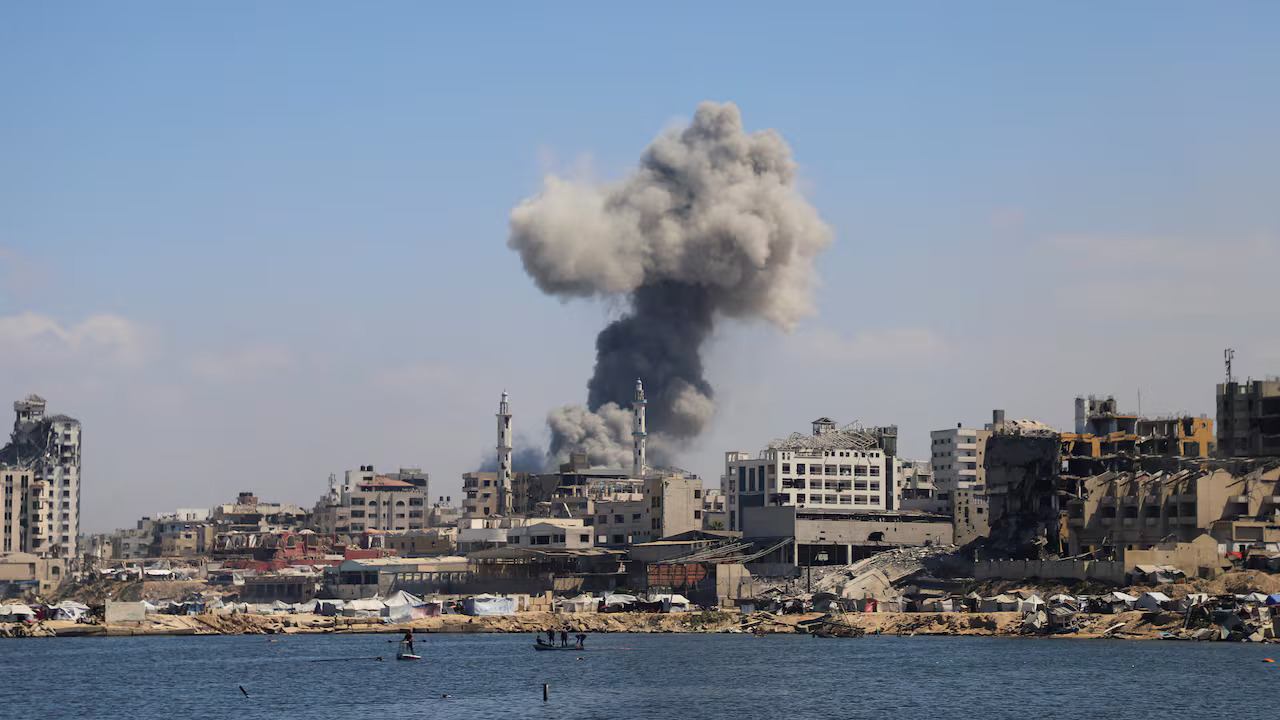
NGOCSTIP – Israel faces mounting pressure as the ceasefire agreement in Gaza begins to unravel. Prime Minister Benjamin Netanyahu has reaffirmed his determination to secure the release of every hostage. Defense Minister Israel Katz has warned that the military will resume combat if Hamas fails to meet its obligations. According to statements made in Jerusalem, Hamas has violated key terms of the agreement by not returning the remaining hostages. The militant group admits it faces major obstacles in recovering bodies trapped beneath destroyed tunnels and buildings. The ceasefire brokered by the United States aimed to ease the humanitarian disaster in Gaza, but rising frustration and threats of renewed fighting cast doubt on its survival. The situation has drawn international concern, with observers fearing that a single misstep could trigger a devastating return to war.
Israel continues to raise the pressure as Hamas struggles to deliver the remaining bodies of hostages. Officials have issued a clear ultimatum stating that any further delay could result in renewed military action. Families of the victims express their anger at what they call repeated violations of the deal. Hamas claims that the recovery process requires more time due to collapsed tunnels and massive debris. Under the agreement led by President Donald Trump, Hamas released 20 living hostages and returned the remains of nine others. In exchange, Israel freed nearly 2000 Palestinian prisoners and paused its Gaza offensive. Nineteen bodies remain missing beneath the ruins. Turkish disaster experts have joined the search effort after Hamas requested help. These delays have intensified public outrage inside Israel, with many demanding a firm response if Hamas fails to comply.
“Read about: Trump Shocks the World: Vows to ‘Kill’ Hamas If It Doesn’t Disarm Over Gaza Violence”
The ongoing crisis has worsened Gaza’s already desperate humanitarian situation. The United Nations has reported widespread famine since August. Thousands of families lack access to food, water, and medical services. Israeli airstrikes earlier in the conflict left large parts of the territory in ruins, killing more than 67000 residents. Only 13 of 36 hospitals remain partially functional. The World Health Organization has issued warnings about infectious diseases spreading rapidly. Officials report outbreaks of meningitis, respiratory illnesses, and severe diarrhea. Health workers face overwhelming conditions with limited resources and constant insecurity. International aid groups call for immediate action to stabilize the ceasefire, fearing that renewed fighting would worsen the crisis. The fragile truce, already under pressure, now stands on the brink of collapse as humanitarian agencies struggle to contain the disaster.
“Read more: Flu Chaos in Malaysia: Thousands of Students Sick, Schools Forced to Close!”
President Donald Trump, who initially urged patience, now voices deep frustration with Hamas. He criticizes the group for delays in finding the bodies of the remaining hostages. Trump claims Hamas is digging to locate the remains but not making meaningful progress. His tone shifted after reports emerged of recent shootings of Palestinian civilians. He warned that further killings would trigger a strong response. Trump’s message has increased tensions, signaling Washington’s impatience with the situation. Analysts say his remarks have raised pressure on both sides to act swiftly. Diplomatic observers fear his tough stance may either push Hamas to comply or accelerate a new escalation. The international community watches closely as his administration faces a critical test in maintaining regional stability and preventing a return to full-scale conflict.
The future of the Gaza ceasefire remains uncertain as mistrust grows between Israel and Hamas. Both sides accuse each other of failing to uphold their commitments. Families of Israeli hostages demand an immediate freeze on further steps of the deal. Israeli leaders hint at military retaliation if Hamas does not deliver results soon. Meanwhile, humanitarian agencies warn that renewed violence would bring catastrophic consequences for civilians. International mediators scramble to keep communication channels open and prevent further escalation. Gaza remains heavily damaged, with thousands displaced and aid operations stretched to the limit. Global attention now focuses on the coming days, which may determine whether diplomacy can hold or war returns to the region. The stakes are rising as political pressure intensifies in both camps.
This article is sourced from cnbcindonesia and for more details you can read at ngocstip
Writer: Sarah Azhari
Editor: Anisa